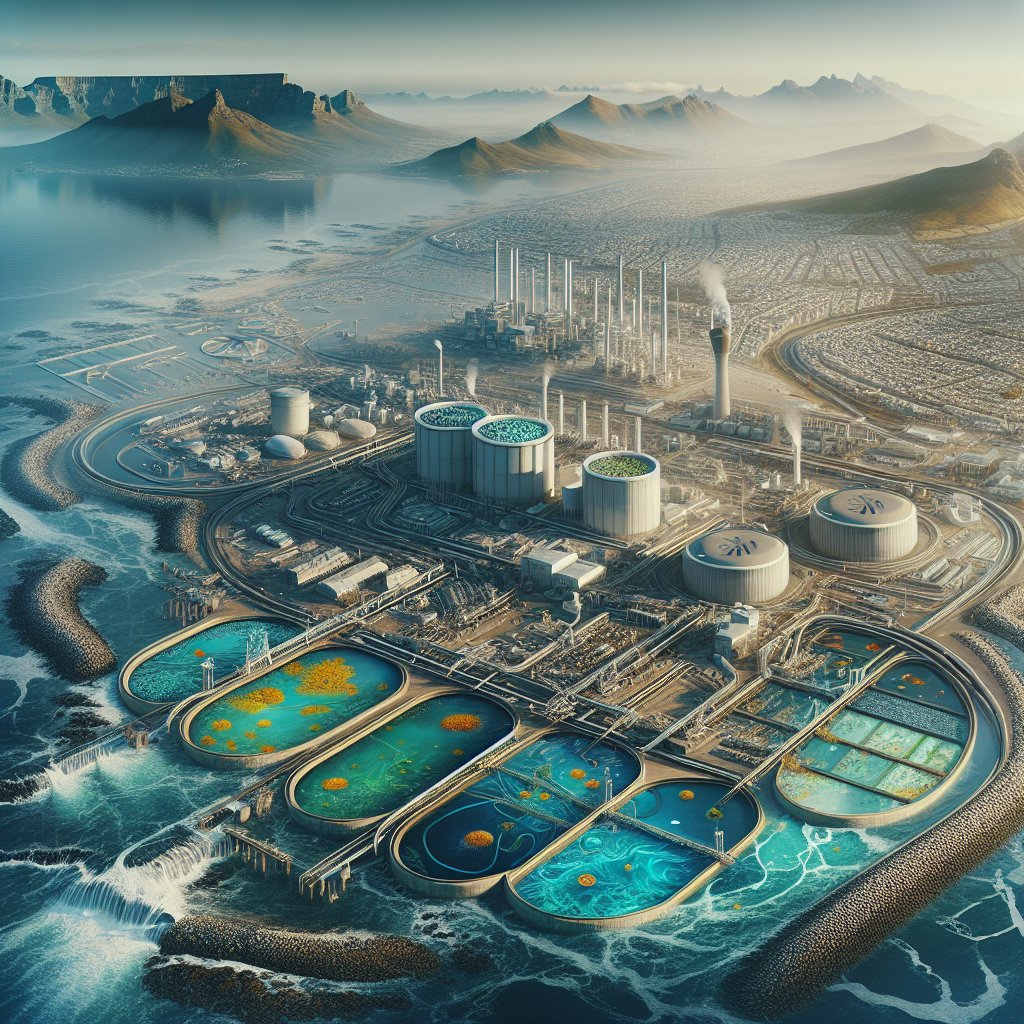Image created by AI
Cape Town's Sewage Crisis: Polluting False Bay, New Reports Indicate Urgent Need for Infrastructure Upgrades
False Bay, an iconic coastal region in South Africa, is facing an environmental crisis due to failing sewage treatment facilities. The Cape Flats Wastewater Treatment Works (WWTW), located near Strandfontein, is the largest sewage treatment operation in Cape Town, with the capacity to treat 200 million litres per day. Despite this, alarming reports have revealed that these facilities have been continuously falling short of the required wastewater treatment standards.
According to the 2022 Green Drop Report by the Department of Water and Sanitation (DWS), the Cape Flats WWTW handles at least 114 million litres of sewage daily. However, the latest data indicates a dismal compliance record, with microbiological compliance at 0% for 2023 and an average chemical compliance over the past six years peaking at just 43%. These failures result in the discharge of incorrectly treated sewage into False Bay, undercutting both marine ecosystems and public health.
The problem is not limited to the Cape Flats WWTW; many other Cape Town treatment works share similar compliance issues, exacerbating pollution levels. Out of the 23 sewage treatment plants in Cape Town, 15 have failed to achieve satisfactory microbiological or chemical compliance, according to the IRIS data for last year. Notably missing from this data are the marine outfalls at Green Point, Sea Point, and Hout Bay, which discharge over 32 million litres of untreated sewage into the ocean each day.
Independent analysis of water samples from 14 popular recreational areas in False Bay has shown high levels of enterococci bacteria, indicating sewage pollution. Meanwhile, the City of Cape Town's laboratory has been grappling with its own challenges since at least November 2022, unable to test for enterococci due to issues regarding chemicals and consumables. Although the situation began resolving by November 2023, enterococci data remains incomplete.
The city’s annual Know Your Coast report lists the Cape Flats WWTW as a likely source of pollution. The broader environmental impact includes the accumulation of harmful pharmaceuticals and Per- and polyfluoroalkyl substances (PFAS) that do not break down easily and can work their way into the food chain.
In response to the crisis, Cape Town has initiated significant investments towards WWTW improvements. Mayco Member for Water and Sanitation Zahid Badroodien specified a budget of R1.8 billion for 2023/2024, escalating to R3 billion in the following year, targeting extensions, infrastructure, and capacity improvements, specifically at the Cape Flats and Macassar WWTWs. However, power supply issues due to Eskom loadshedding pose another challenge to maintaining consistent wastewater treatment efforts.
Yet, silence surrounds the future plans for other struggling plants, such as the Mitchells Plain and Scottsdene WWTWs, which are also severely underperforming. Nonetheless, upgrades and refurbishments are in progress at several other treatment works, which hopefully signals the city’s broader commitment to resolving this public health and environmental catastrophe.










